Is Religion Above Law?
Jan 29, 2019 • 150 views
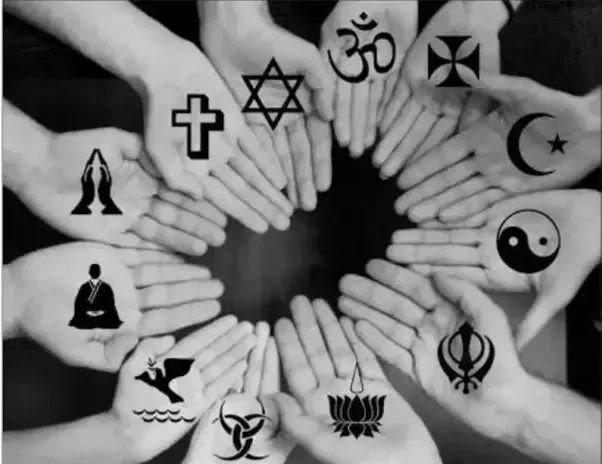
India got it's painstaking independence in 1947 after much patience and sacrifices. India got its Constitution in 1949 which was amended and came into force on 26th January,1950. The Indian Constitution boasts of being one of the world's largest constitution. It has a largest say in the judicial matters of any type where religion is a long-disputed concern of our country.
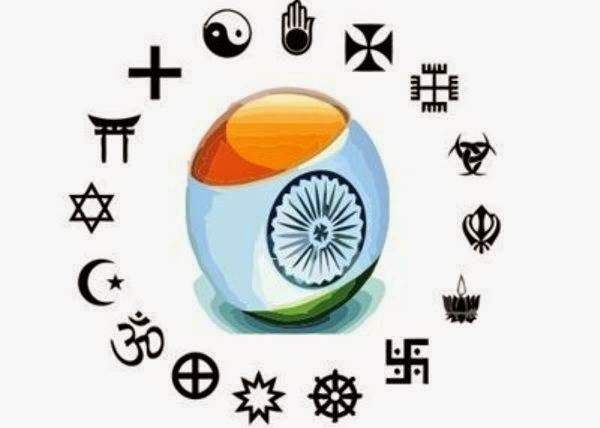
One of the most important and fundamental rights ensured and guaranteed by the constitution is the privilege of the Freedom of Religion. The Indian Constitution has borrowed features from various constitutions from all over the world. Common practice of European countries is where religion and constitution form two separate pillars of a society and run on independent terms. They do not intermingle with each other's affairs. They are two separate provinces. But India is a country that calls itself 'secular’ in nature. Our interpretation of secularism varies from the common notion. There is no state or national religion. Many countries have a specific religion as a state religion that they propagate and support. For example: Buddhism in Bhutan, Hinduism in Nepal, Islam in Maldives and so on. But India as a country provides equal opportunities to all religions from major to minor.
Indian Constitution states it's articles of 25,26 to 28 in the favor of religion.
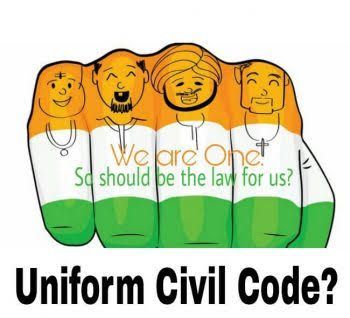
All these articles declare that every citizen has their right to practice and foster their religion. India is a country which has given birth to many a religions like Jainism, Buddhism, Hinduism and Sikhism. Being a diverse and unique country, it has seen a legion of religions that have proliferated over the centuries. Since every religion has it's crucial part in the history of our country, India supports each one of them equally. But the law overpowers all other footholds over the country. The Indian Constitution does provide all religious denominations to carry their business internally but also makes them liable to be subject to the state government. The state government can exercise its power over any religious institution which is alleged to convulse the society and divest it of it's harmony and peace. The law even stands for respect among each religion for one another. It has strictly banned actions or activities by any organization that disrespect and dishonor other religions. Some recent incidents like the enactment of anti-untouchability act(SC/ST Act,1989) along with the law banning triple talaq among the muslim community prove the constitutionally mandated intervention.
Also, this era is the era of women. Women are not left behind in any genre of any field today. They enjoy equal rights and opportunities. Movements like #MeToo have led to the blossoming of an ever-expanding society where women are treated the way they always deserved. Religion is no different in this aspect of women equality. Many temples have not allowed the entry of women for years. One of such temple is the Sabarimala Temple in South India.
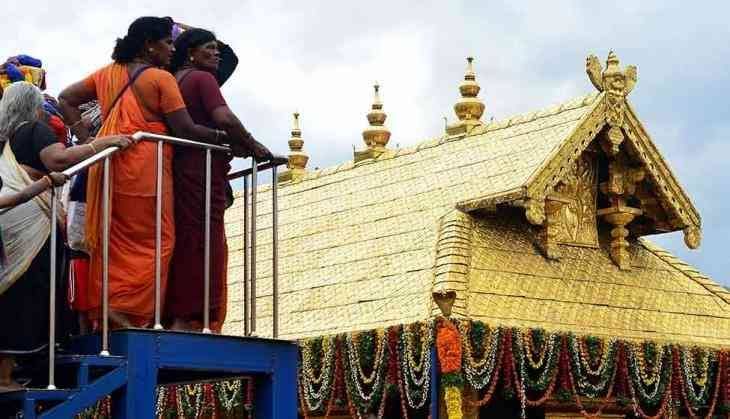
Sabarimala Sree Dharma Sastha Temple, commonly known as the Sabarimala Temple, is one of the most famous and celebrated Hindu temple of India. Situated in Pathanamthitta district of Kerala, it offers respect and devotion to the God Ayyappan. The Lord is worshipped to be the Lord of celibacy. Also called as the 'Naishtika Bramhachari’, the Lord sees it's devotees coming from all over the world in huge numbers each passing day. It is estimated that about 2 crore devotees visit the pilgrimage centre every year. The temple came into a disputing issue in the past years owing to its ban on women of menstruating age to enter the temple. The women of age 10-50 have been prohibited to enter the temple for years. It is to pay reverence to the celibate nature of the deity. But, it openly violates the law of equality of women. Article 14 if interpreted correctly says that no person shall be discriminated on the grounds of biological or physical differences. There are a plethora of opinions of the people belonging to all regions of the country on this topic. Some rigidly support the gender equality issue while some disapprove of it on a whole simple base of traditional beliefs and customs.
For the topic of gender equality-
Arguments in favor of the women declare that today's modern world shall show no importance to patriarchal beliefs and conventions. The ban of women in the temple also promotes patriarchy in society. This violates the law as patriarchy is not acceptable in the eyes of the law. The Hindu religion believes menstruation to be impure and that a menstruating women shall not be allowed to worship or visit any temple. This conception is targeted on a whole by feminists. Infact menstruation is biologically proven to be a symbol of purity. It symbolizes the chastity of women as well as assures her fertile nature. Some argue that technically there is nothing more pure than this fact itself. There is no base on which it can be terminated as impure. Thus, to deny entry on such an issue is not acceptable in the society that promotes the equality of women and their safety. Another point stated is that there shall be no exceptions for any temple. The fact rules out that there are other temples of the same idol of Lord Ayyappan where women are always welcomed. Thus, there is no reason for this temple to be classified as a special case. People argue that it also violates the articles 14,15,19 and 25 of the Indian Constitution.
Women are also excluded from being part of the prayers offered at the sanctum. They cannot even visit the sanctum. This deprived them of their right to practice their religion freely. The religious organization cannot use their rights to manage it's religious affair independently and internally for overriding the right to the freedom of religion. It shall never overpower the basic right of any individual to practice their religion freely. Many other opinions have surfaced in the past to support the cause of allowing women to enter the Sabarimala temple.
Against the topic of gender equality-
Many a large number of groups of people mainly comprising of the local people of the south believe that the ban is righteous and shall not be lifted for the mere sake of gender equality. Even some local women support it to pay their homage to the deity Malikappurathamma. It is believed that she was once a demoness who was relieved by Lord Ayyappan of her curse to lead her life as a demon. She was persevere and persistent to marry Lord Ayyappan. He promised her of marriage only on the day kanni-swamis stopped visiting that temple. But his conditions were not able to be fulfilled as kanni-swamis visited the temple religiously every year. Thus, women believe it is the sacrifice and love of the Goddess Malikappurathamma that should be honored by not violating the rules and regulations of the temple that have been considered a heritage and followed from ages. Others say that it was the Lord himself who had restricted women from entering the temple to curb issues of distraction for himself to remain celibate. Also, some cite the reasons of menstruation being considered as impure while some believe it should be followed to keep the religious assets of cultures and beliefs unchanged. It should be followed to prevent a age-old followed ritual from vanishing from the society due to the enhancement and development of the society. Some also provide with practical explanations suggesting that the temple being situated on the top of a hill, is a physical challenge for women and also lacks hygiene amenities.
Previous attempts-
Many women have been revolting against this ban and have made various dangerous attempts to enter the temple. Various women journalists were assaulted and forced to withdraw their pace towards the temple in October. Also many women were made to stop their journey at Pamba with protests.Violent protests were staged at different locations Nilakkal and Pamba camps after the Supreme Court order. The local people have molested women before also to prevent them from entering their Sabarimala temple. In October and November, ventures were started by many a women to reach the temple but they were stopped by protests on their way. The women were even at times denied police protection. Also, even at times when some of the women were able to gain police protection for themselves, the protests were uncontrollable by the police and the women faced failure. In December, four trans-women also tried to visit the religious temple but were asked to 'dress as men’ to be allowed to visit the temple. Also, they alleged they were molested by the locals as well as the police. All in all, women faced huge predicaments to conquer the misconceptions of the people. But the Supreme Court of India had ordered in September that no person shall be prohibited entry in the temple on the basis of gender. The court held it's point firmly that any exception having a base of discrimination and inequality on the grounds of gender, religion or caste shall be termed as illegal by the law. It lifted the ban on women of menstrual age that restrained them to enter the temple with a ratio of 4:1 among it's deciding judges headed by Chief Justice Dipak Misra. All four judges were unanimous in their say that equality shall remain the top priority. Ironically, the judge who was against the lift of ban was the sole woman in the panel,Justice Indu Malhotra. She said that lifting such a ban may provoke violence in the country and that a respected tradition shall not be altered or abolished to maintain the point of equality at every stage in all fields. But finally on 2nd of January,2019 two women entered the temple to offer their prayers. After that there have been many successful endeavors by women to enter the temple. Kerala Government recently declared that almost fifty women dodged the protesters to enter the temple in one go.
Other examples:-
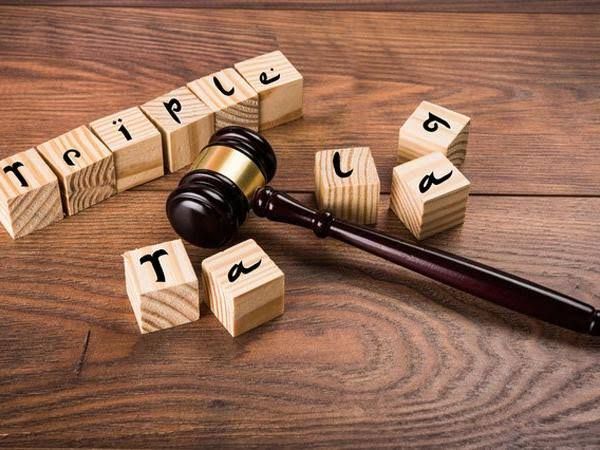
Triple talaq-
The instant triple talaq is a practice commonly used by Muslim men to divorce their wives in one go. In this, a man has to repeat the word 'talaq’ three times over in single instance. By this, the man stands divorced with his wife. In today's technology men used social medias to type talaq three times and divorce their wives without facing them. The woman is not mandated to be present in person. This is something pitiful for innocent women more than anything. They no longer can claim their rights. They are left helpless and devastated within a moment. The men divorce their wives in the spur of certain moments and bring the lives of the woman to a standstill. They need not cite any reason for their extreme step. The women are left deprived of the amenities of their husband's wealth and are accepted to survive on their own. The husband is neither questioned nor answerable to anyone. The divorce is termed legal. Also, if the woman wants to remarry, she has to wait for a certain period of three months. The irony is that if she wants to remarry her husband, she first has to marry another man, consummate her second marriage, divorce him and after a period of three months is she liable to marry her husband. This is banned in many countries like Afghanistan, Morocco and Saudi Arabia as it is totally unconstitutional and hostile.
India has seen a humongous number of cases of instant triple talaq arising over the years. It has led to many protests by upstanding women who fell victims to this heignous practice. The women are not to be blamed. The practice raises eyebrows of concern over the grounds of justice, gender equality, human rights and secularism. They have faced a plethora of mental torture by the society due to a stupid decision of their husbands. They are bound to raise their voice against such inequality beyond criticism. The most popular case was of a Muslim woman,Shah Bano. Shah Bano was a sixty-two year old woman,mother of five children, when she was divorced by her husband with the means of instant triple talaq. She had no means to support the livelihood of her children and was left to die. She filed a petition and was assured a certain amount of money shall be given to her by her husband. The court ruled in favor of the woman which led to a series of episodes of violence and protests that were based on the say that it had violated the Quran. The case has grown over the years and attained Justice in 2017 when the Supreme Court banned instant triple talaq and labelled it as a criminal offence. It stated that a man using such means shall be punishable by law. But the concept of triple talaq stands supported by the law till now. It never banned the concept of triple talaq which stated that a man can divorce his wife by saying ‘talaq’ three time but not in one go. After saying it once, the wife is given a time of three months and the husband can change his mind in this period. If not, the husband shall say 'talaq’ three times, each after a certain time gap. Recently, the Modi government initiated a bill to ban the practice and make it harsher for the people who support it. One of the main clause of the bill state that the crime is a non-bailable punishment and the offender shall be punished with a fine and a three year imprisonment at maximum. It was rejected due to lack of majority and the opposition which held the view that the non-bailable clause was a bit too much. But later it was accepted in the Lok Sabha and has been sent to Rajya Sabha for approval. Triple talaq symbolizes the best of the cases in which the law had to interfere with the religion to uphold the harmony and peace of the society. It clearly showcases the importance of law in our society where age-old traditional practices and notions can emerge out to be demolishing the status of equality and integrity of the country.
Haji Ali Dargah-
Much like the Sabarimala case, this case had a equality issue for women. The women were not allowed to enter the main inner sanctum of the mosque. The Haji Ali dargah is situated on the islet coast of Worli,Mumbai. It had prohibited the entry of women from 2012 in a sudden move. It not only discriminated women for their gender but also was termed as patriarchal and unequal. It was after much protests and movements like 'Haji For All’ that women gained their well-deserved rights back. The Bharatiya Muslim Mahila Andolan gave rise to the blooming of the initiative to uplift the ban. They filed a public interest litigation stating that this ban was a violation against the fundamental rights mentioned and sanctioned in the articles 14,15 and 25 of the constitution. The Bombay High court lifted the ban in 2016. Authored by Justice Revati Mohite Dere, the case turned out to be a historical achievement for the rights of women mainly representing the equality in our country. But the Dargah Trust is likely to move to Supreme court for it's matter. The Supreme court will hear the case at length. But one thing that holds firm without the shadow of doubt is that the law shall never allow religion to stand above the basic rights of any individual that shall blemish or tarnish the image our ancestors dreamt of for our country while they were forming and framing the Indian constitution.
Bihar Preservation and Improvement of Animals Act, 1955-
The government passed a bill in 1955 declaring cow slaughter as a criminal offence. The members of the Qureshi community were unsatisfied and appealed in the court claiming violation of Article 14 (equality), 19 (1) (g) (freedom to practice any trade or profession) and 25 (religious expression). The petitioners made the argument that the religious practice of sacrificing a cow on Bakra Eid day must be protected under Article 25 of the constitution. But the court ruled out that the slaughter of cow being a required mandatory act was nowhere mentioned in Quran. This proved that the religion has no power or right to slaughter the living for the sake of their free practice of religion. They shall not harm the animals or any other living being for religious purposes. This depicts the importance of the living and the law over the religious beliefs and practices.
Ananda Marga case-
Ananda Marga is an organization that mainly works in Kolkata. It made headlines for demanding protection to perform it's ritual of Tandava Nritya. It is one of the most controversial practices of this socio-spiritual organization. It is performed by carrying a dagger in one hand while human skulls in another.
The skull and dagger are symbolic, the skull symbolising man's mortality and the dagger symbolising the power to slice through the bondages that humans are subjected to, argue it's supporters and followers. But the Supreme Court of India stated that Ananda Marga is not a separate religion but a denomination that subscribes to Hindu religion and philosophy. It was decided and held that the Tandava dance could not be said to be an essential rite. Also, depiction of such practice can harm the peace of the society. It disrupts the mental peace and harmony of a normal person and cannot be termed as religious. It shall be prohibited in all ways and is punishable by law. This verdict proved that the Supreme Court is a depiction of the Indian constitution and not the sentiments of the people. It passes it's verdicts in favour of the betterment of the society and our country.
Solution-
India is a secular country. It cannot afford to hurt the sentiments of its citizens as this will lead to hussle-bussle everywhere. The courts shall take care of this fact before making any judgements involving religion. The religious beliefs shall not be subjected to opinions by one and everyone but shall be managed by law. The opinions by everyone only leads to confusion. The Supreme Court shall look into the matters of religion from time to time ensuring the prevention of violation of law in any field or place in the country. The court can change its laws but not the beliefs of people. The cases that surface each year are a result of intolerance growing up in our society. The court shall see into it that any verdict shall see it's implementation in stages. Protests againsts the orders cause injuries to the peace of the whole society as well as damages the people on a whole. The only solution to such cases where the religion and law collide is to pass a neutral judgement. Sudden judgements in favour of one side disrupts the society. Thus neutral judgements shall do the work. Also, in some cases like the Sabarimala case neutrality is hard to achieve. In such cases, the court shall ensure step by step implementation of the judgement. The Kerala government is having a hard time implementing the Supreme court order to allow women to enter the temple. The protests are hard to control. Also, the mindset of the people is something beyond the control of the law or the Supreme Court. Women were beaten and outcasted from their homes after they entered the Sabarimala Temple. The beliefs can be attacked but it is impossible for the court to mend and destroy the conceptions fully. Therefore, court shall also search for ways in which it can provide help to the people who suffer even after the judgements and fell victims to the locals and the society. The court shall give people time to change their mindset towards misconceptions. The disputes should be settled by an Indian civil code as envisaged by our Constitution. The civil code gives equal importance to the religion as well as the law. Both come on equal terms in this code. This will satisfy the people that their religious beliefs are being respected equally with the Constitution. The government shall also do its duty to maintain peace and harmony in its individual states. If all governments work efficiently with diligence, the people's faith will build on to them. This will help the government to implement the judgements easily if it has got the support of its people. This is something that is lacking in majority of states. The people do not trust the government to be supporting the religion of it's people.
The people shall be taught to promote their religion keeping in mind that the country shall remain the first priority. Their free promotion shall not hinder the growth of the country by unnecessarily deviating the young minds to petty issues of religion which can be handled internally. The people should be taught to be tolerant and respectful towards all other religions and that humanity is the biggest religion of all. They shall learn that the God views all its children as equal and we stand nowhere to change this ideology of His. We do not own the right to promote discrimination and inequality in His name. We shall learn that cases like Sabarimala Temple case are not a issue of simple entry but a larger issue of equality. Broadening the outlook shall do wonders.
Conclusion-
The solution may fall short in the today's time where are country is seeing intolerance at its zenith. New cases originate each day. But the base remains same. The religious beliefs overpowering the constitution. We all should realize that we are Indians first and Hindu,Muslim or Sikh later. We shall proliferate the idea of equality for all within the people of all age groups. We shall teach everyone can follow their religion andbeliefs as long as it is in the favour of humanity and quality. Our ancestors lived in an era where the law was not even existing. At that time, religion was the pillar of the whole society. If at that time, they could bring themselves out of the religious misconceptions to create a Constitution that motivated equality for all. They dreamt of India that was free from inhuman practices. Thus we shall do our part of making their dream turn into reality. We shall increase the frequency of our thoughts to match with the framers of our Constitution. We shall teach ourselves that we live in a better world in terms of equality than our ancestors did. Thus it is our responsibility to elevate the position of our country. There is much to fight against like the malnutrition and poverty which kills millions of people each year in our country. Thus we should stop fighting with the laws over our religious beliefs. We should widen the spectrum of our aims to help India become a country free from poverty and hunger. A land of our dreams.
